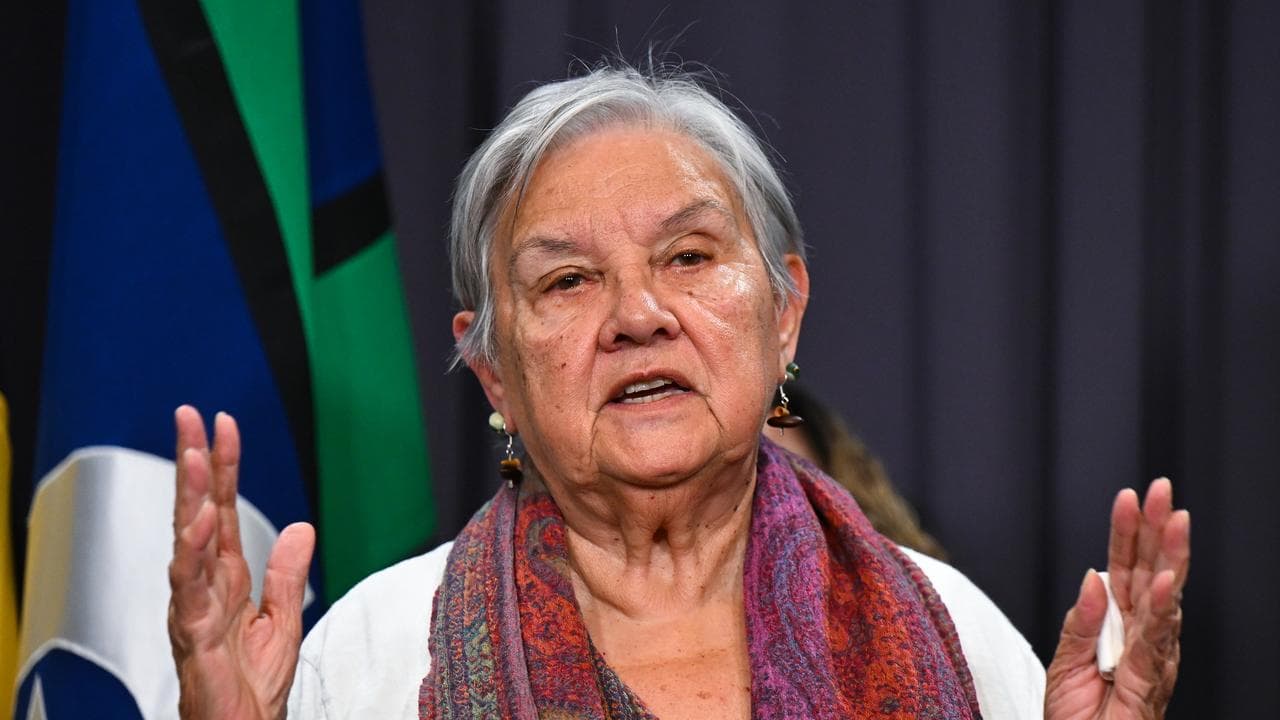
The path has been cleared for a wider conversation on an Indigenous voice as a leading advocate declares there is no hidden agenda behind the plan.
After parliament passed legislation enabling a referendum, Uluru Dialogue co-chair Pat Anderson said it was time for politicians to step back from the referendum debate.
"We've been through all the technicalities now, we can leave Parliament House and leave all the politicians behind so we can have a real conversation, a real discussion with the Australian public," she said on Tuesday.
"It's the Australian public who now have the authority to decide 'yes' or 'no' and when they get into the solitude of that polling booth, there's just them and their conscience."
Ms Anderson said 'yes' campaigners would be talking to Australians about the practical benefits a voice would bring for Indigenous people.
"There is no hidden agenda here, there's no bogeyman," she said.
"We just want to be able to talk directly about our needs and our challenges and talk to the government and the executive of the day (on) how we might fix those."
Opposition Indigenous Australians spokeswoman Jacinta Nampijinpa Price said she would be leading the 'no' campaign from the front.
"I have been very vocal about ... my concern with the voice campaign, with the proposal, with the lack of detail, the lack of transparency around it," she said.
One of the main arguments used by opponents of the voice has been that the structure and processes for the body are yet to be spelled out.
Federal parliament will be required to legislate the functions and structure of the voice if the referendum is passed.
Ms Anderson said there would be enough information for voters to make an informed decision.
"We have never gone to a referendum with all of the details … whatever was being voted upon, we go on matters of principle," she said.
"There are nine principles that are out there for everybody to look at and all of the details of how it's all going to work will be done after the 'yes' vote."
Indigenous Australians Minister Linda Burney said the voice would not be giving the government advice about "ridiculous" matters such as parking tickets and changing Australia Day, as suggested by opponents.
"This is about two things, it is about recognition and listening ... recognising Aboriginal and Torres Strait Islander people in our constitution and listening to them so we get better outcomes," she said.
"It is a means to the end, the end is a better future for First Peoples."
As part of the referendum information process, the Australian Electoral Commission asked MPs to provide it with 2000-word 'yes' and 'no' cases to be published in a booklet to be sent to households.
The information will be required by July 17.
The government has established a committee to liaise with 'yes' case proponents on the cross bench and within the Liberal Party on the details in the pamphlet.
Nationals leader David Littleproud said he understood a 'no' case committee would also be set up to put forward key arguments, including the "failed bureaucracy" model for the voice and that it would introduce inequality of representation.
Independent senator Lidia Thorpe will seek to contribute to the 'no' case side of the pamphlet.
The prime minister is working with advisers on setting a date for the referendum, but it has been speculated October 14 is the government's preferred date.




